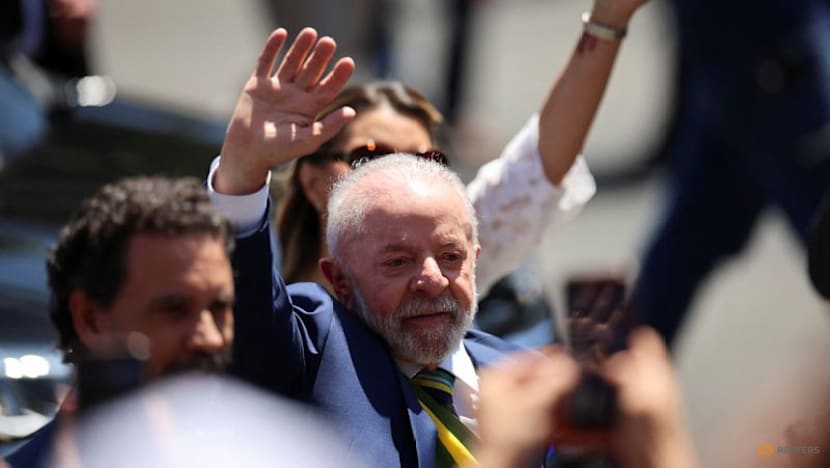Brazil's Lula calls for tighter trade ties for BRICS as tariffs bite

Brazil's President Luiz Inacio Lula da Silva waves as he attends the Independence Day parade in Brasilia, Brazil Sep 7, 2025. (Photo: REUTERS/Adriano Machado)
BRASILIA: Brazilian President Luiz Inacio Lula da Silva said on Monday (Sep 8) that more trade and financial integration among the BRICS group of developing nations would help mitigate the effects of protectionism.
"Tariff blackmail is being normalised as a tool for conquering markets and interfering in domestic issues," Lula said in the government's published remarks of a Monday virtual meeting of BRICS leaders, without directly citing the United States.
BRICS countries have become "victims of unjustified and illegal trade practices", Lula said.
BRICS members Brazil and India are among the countries hardest hit by US President Donald Trump's tariffs, while new sanctions against Russia over the war in Ukraine are expected.
"Increasing barriers and complicating transactions will not help. Neither would the linking of trade measures to non-trade matters," India's Prime Minister Narendra Modi said, according to a speech shared by India's Foreign Ministry.
Lula told Reuters in an interview last month he would raise the issue of Trump's tariffs with BRICS.
The 50 per cent levies on most Brazilian exports are linked to what Trump has described as a "witch hunt" against his ally and former Brazilian President Jair Bolsonaro, who is on trial for allegedly plotting a coup.
US tariffs on Indian goods were doubled last month to as high as 50 per cent in response to India's continued imports of Russian oil.
"Certain countries have launched trade wars and tariff wars, severely impacting the world economy and seriously undermining international trade rules," Chinese leader Xi Jinping said during the meeting, according to China's state-run news agency Xinhua.
The virtual meeting, which lasted one-and-a-half hours, brought together leaders from Brazil, Russia, India, China, South Africa, Egypt, Indonesia, Iran, the United Arab Emirates, and Ethiopia, Brazil's government said in a separate statement.
The group discussed the risks posed by the resurgence of unilateral measures, particularly in international trade, and explored ways to strengthen mechanisms for solidarity, coordination, and trade among BRICS nations, the statement said.















